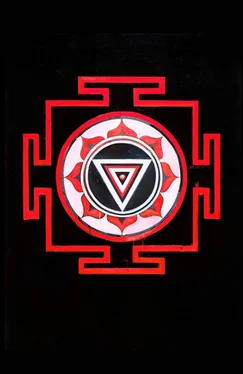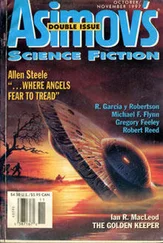‘Or maybe two fresh bullet wounds in the leg,’ Didier observed.
‘Concannon. And the other man?’
‘I never saw his face. He looked away from me, and he covered his mouth with a handkerchief, coming and going.’
‘Did he have a car?’
‘No, sir. He walked away, very fast, in the direction of Navy Club.’
‘Did you get the number of the car?’
‘Yes, sir.’
He went through his logbook, and gave me the number.
‘I’m so sorry, sir. I should have -’
‘Your job is to guard the gate, not the apartments. It’s not your fault. She liked you. Very much. And I know you would’ve saved her, if you could, just like I would’ve done. It’s okay.’
I gave him a chunk of money, asked him to keep his eyes open for the cops, and climbed the steps to my apartment.
I opened the door, walked through the living room and stepped into the bedroom. That place of quarrel and love, for us, had become a tomb for Lisa, alone.
The mattress she’d bought because she liked the seahorse pattern on the cover was stripped bare, but for two pillows at the head, and a pair of Lisa’s well-worn, well-loved hemp sandals at the base.
After a minute, I stopped staring at the place where Lisa’s breath had faded, and ceased, and stopped, and died, and I moved my eyes away.
The room was clean, and empty. Everything of hers was gone. I looked at the few things of mine that remained.
The red movie poster, Antonioni’s Blow Up , art and abandon becoming death and desire, and the wooden horse head on the window sill, my belts, strung on a suit stand in the corner, the sword, in two pieces in the wall unit, and a few books.
And it was all: all there was of me in the apartment. Without Lisa’s flowers and paintings and coloured sarongs, the place we’d called home was cold, and alone. What is civilisation? Idriss once remarked. It’s a woman, free to live as she wants.
‘There is a picture of her, in death, on that bed,’ Didier said, standing in the doorway. ‘It is in the police report. Do you want to see it?’
‘No. No. Thanks.’
‘I thought it might console you,’ he said. ‘She looked very, very peaceful. As if she simply went to sleep, forever.’
We listened to the silence, echoing off the walls in our hearts. Just the thought of that picture, of her dead sleep, made my stomach churn with dread.
‘You are not safe, I am afraid, Lin,’ Didier said. ‘The police are very hot for you. If they come to know that you have returned to Bombay, they will come here, looking for you.’
He was right: right enough to shake me awake.
‘Give me a hand,’ I said, beginning to wrestle the heavy chest of drawers away from the wall.
We pushed the chest wide enough to expose the false back panel. It looked untouched. I released the cover.
‘Have you got a man you can trust to hold my guns, a lot of money, some passports and half a key of the best Kashmiri that ever rolled down the Himalayas?’
‘Yes, for ten per cent.’
‘Of the money only?’
‘Of the money.’
‘Done. Call him here.’
‘I must insist that he brings something to drink with him, Lin. Do you know how many hours it has been, since I last made contact with alcohol?’
‘You drank from your flask three minutes ago.’
‘The flask,’ he sighed, genius to child, ‘does not count. Shall I tell him to bring food, as well?’
‘I don’t want any food.’
‘Good. Food is for people who don’t have the courage to take drugs. And food kills half of the alcohol effect. There was a test done on a drunken mouse, once, or perhaps it was a drunken rat -’
‘Just call him, Didier.’
I stuffed a few bundles of rupees in one inside pocket of my denim vest, and a bundle of US dollars in the other. I cut a piece off the Kashmiri key, and put the rest back in the compartment. I strapped on my knives in their scabbards.
After snapping the cover in place, I shoved the chest against the wall again, in case someone other than Didier’s man entered the apartment.
Didier was in the open kitchen, searching through the cupboards.
‘Not even cooking sherry,’ he muttered, and then he saw me and smiled. ‘My man, Tito, will be here in half an hour. How are you, my friend?’
‘Not-good-okay,’ I said absently.
I was looking at the refrigerator. The photographs that Lisa had taped to the door, photographs of her that she’d asked me to take, were gone. Strips of clear tape remained, framing empty spaces.
She’d insisted on tape, instead of magnets. I hate magnets , she said. They’re such treacherous things .
‘Her parents,’ Didier said, ‘gathered everything that was hers, and took it with them. There were many tears.’
I went to the bathroom and washed my face with cold water. It didn’t work. I fell forward on my knees at the toilet, and emptied every dark, acid thing that was inside me.
Didier found me, and did the right guy thing. He backed away, and left me in pieces.
I washed up again, and looked into the mirror.
A photo that Lisa had pushed in the top of the mirror frame had been torn away. Lisa’s face had been ripped from the picture, and only my foolish, smiling face remained. I took it down, tore it up and threw it in the bin.
Sitting in the living room, Didier and I drank strong, black coffee, and smoked strong, black Kashmiri. It was Lisa’s stash: her perfect, heavenly high, only for the most special occasions, which was why I’d had to hide it with my things.
And when the brandy and the food arrived, with Tito, we drank a toast, with Lisa, to the loved.
Tito helped me shove the heavy chest away from the wall again.
‘Nice,’ he said, when he saw the guns, passports and money. ‘Ten per cent.’
‘Done.’
He began to stuff the bundles into a sack.
It was my safety net in the Island City, the stake I was bringing to the table as a partner with Didier: everything I owned that wasn’t in my pockets, or my pack.
Tito was about to tie the sack closed, but I stopped him.
‘Wait a minute.’
There was a place I hadn’t looked, and that the police might’ve overlooked. There was a gas-fired hot water heater in a closet. Lisa had made a shelf on top of the heater to dry out some tripping mushrooms, which a friend had brought from Germany.
I opened the door and searched on top of the panel. There was a shoebox in the back. I saw the words REASONS WHY written on the end panel.
I pulled it toward me, feeling around inside, and my hand shivered through keepsakes and pictures as if through reeds in a pond.
They were simple things: a thin, silver scarf she’d worn, the first time we met, a wind-up child’s toy, a brass Zippo lighter that Didier had given to us as a housewarming present, and that she couldn’t bear to let me use, for fear that I might lose it, which I would’ve done, a dog whistle that she used whenever we walked on Marine Drive, so she could get the attention of every dog she passed, a paperweight I’d made for her from silver rings, and a scatter of stones, shells, pictures, amulets and coins.
It was a box of nothings, bits of stuff that had no value or meaning for anyone else in the world. And isn’t that love, Lisa , I thought, looking at the box of charms. When it means nothing to anybody else, and it means everything to us, isn’t that love? Didn’t we love, Lisa? Didn’t we love?
I put the box in Tito’s sack along with the pieces of Khaderbhai’s sword and the pair of Lisa’s hemp sandals. He tied it tightly, and slung it over his shoulder.
‘What’s your family name?’ I asked him.
I was studying his face. It was an important face. He had all my worldly goods in his hands, and we’d known each other fourteen minutes. I wanted to recognise that face, no matter how it changed.
Читать дальше












